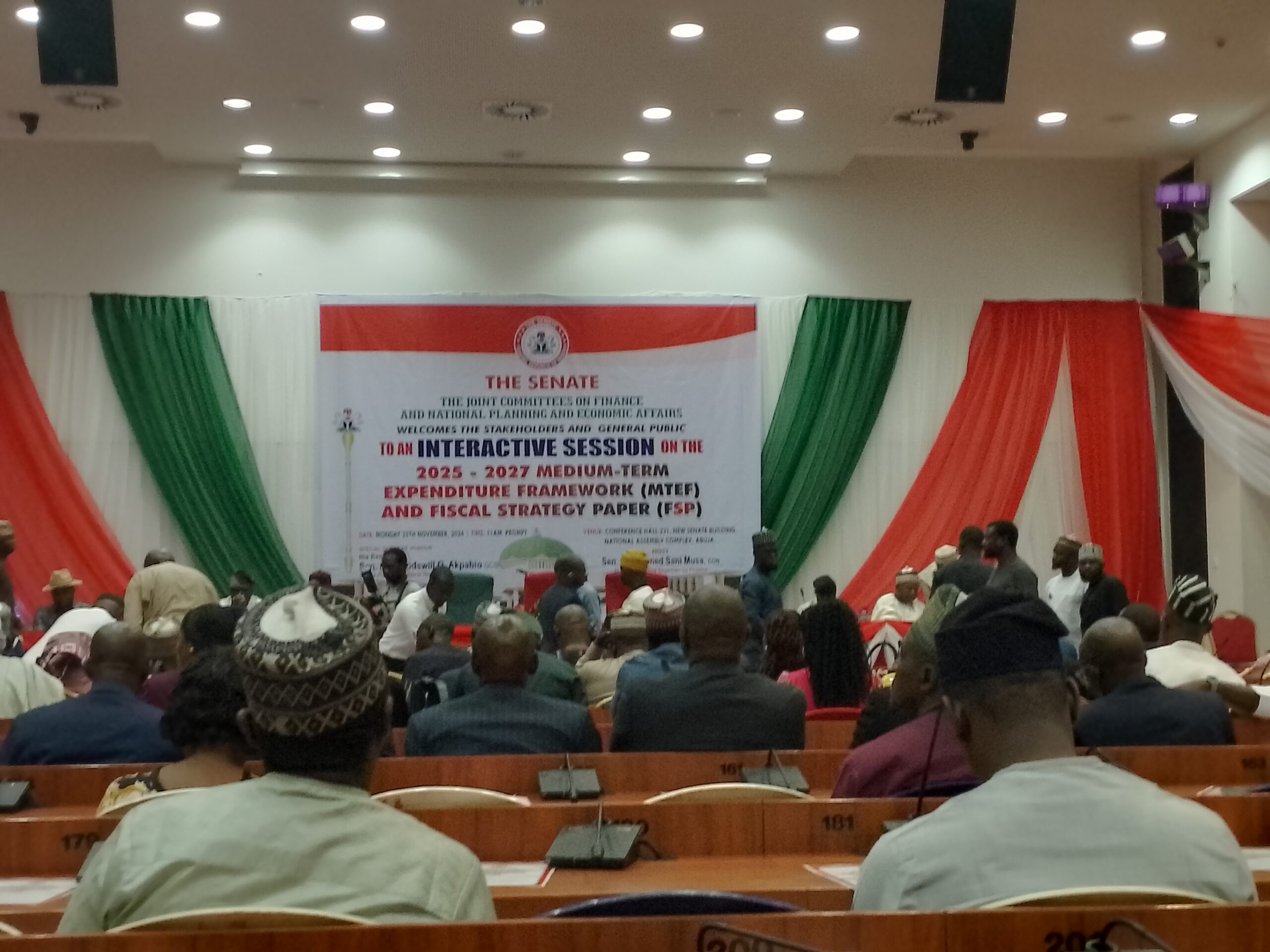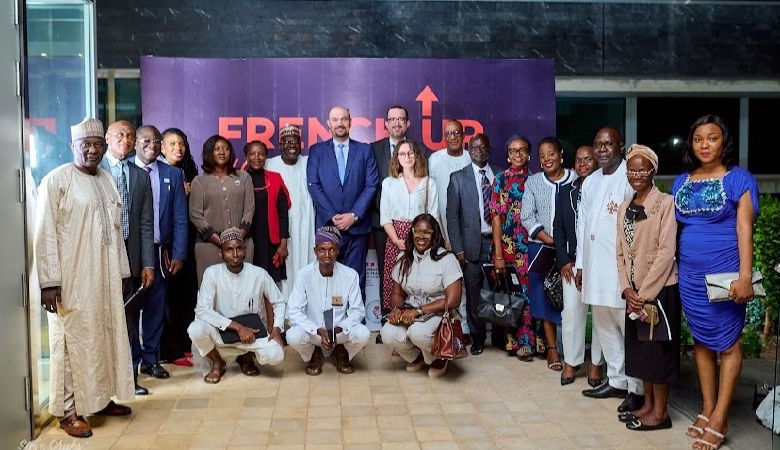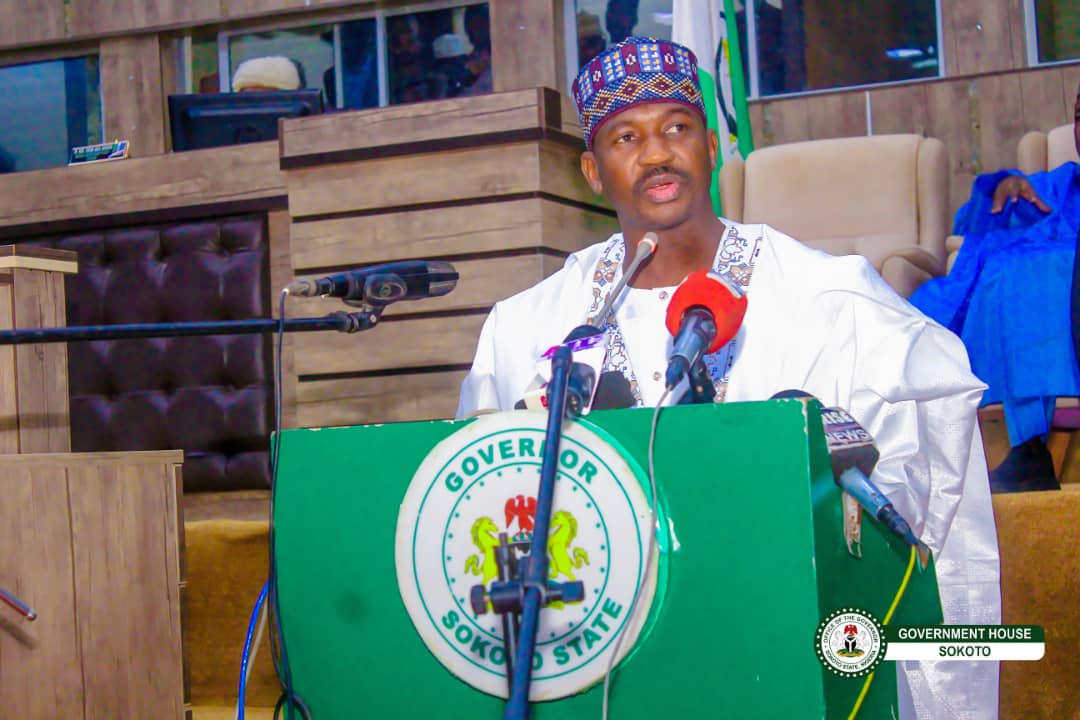
By Fatima Saka
The Senate President, Senator Godswill Obot Akpabio, has urged Nigerians to rally behind the government’s financial programs, emphasizing the importance of investing in the nation’s collective future.
Speaking through the Deputy Senate President, Senator Jibrin Barau, on Monday in Abuja at the Joint Senate and House of Representatives Committees’ Interactive Session on the 2025-2027 Medium-Term Expenditure Framework (MTEF) and Fiscal Strategy Paper (FSP), Akpabio highlighted the critical role of strategic financial planning in fostering economic growth.
Akpabio stressed that supporting initiatives such as small businesses, innovative startups, and larger enterprises is crucial. “By doing so,” he noted, “we contribute not only to economic growth but also create a ripple effect that uplifts entire communities.”
He commended the Senate and House Committees for their collaborative efforts in addressing Nigeria’s financial and economic challenges, stating, “Your commitment to strategic planning and responsible governance is commendable.”
Strategic Financial Planning as a Pillar for Growth, Akpabio described the MTEF and FSP as essential tools for aligning the nation’s financial resources with its developmental priorities.
He remarked, “Globally, countries that adopt structured fiscal strategies are better positioned to weather economic challenges and capitalize on growth opportunities. By implementing the FSP, we are not merely reacting to economic challenges but actively shaping a robust fiscal landscape.”
He further emphasized the significance of adopting global best practices in fiscal management while tailoring them to Nigeria’s unique context. Transparency, accountability, and strategic investments, Akpabio noted, have transformed economies worldwide and must be a cornerstone of Nigeria’s financial policies.
In his opening remarks, Senator Mohammed Sani Musa, Chairman of the Senate Committee on Finance, reiterated the importance of the interactive session as a platform for fostering collaboration and ensuring transparency.
He said, “This session underscores our collective commitment to shaping a robust and sustainable economic framework for Nigeria.”
Musa outlined key metrics of the 2025-2027 MTEF and FSP: “Daily Crude Oil Production: 2.006 million barrels, Oil Price Benchmark: $75 per barrel, Exchange Rate: ₦1,400 to $1, GDP Growth Rate: 4.6%, Inflation Rate: 15.75%
He noted that the federal government’s projected revenue stands at ₦34.82 trillion, with an estimated expenditure of ₦47.9 trillion, leaving a fiscal deficit of ₦13.08 trillion. Proposed borrowings (local and foreign) amount to ₦9.22 trillion, while debt servicing is projected at ₦15.38 trillion.
Challenges and Opportunities
Musa acknowledged the significant challenges posed by the fiscal deficit but also emphasized opportunities for optimizing revenue streams and prioritizing fiscal discipline.
He stressed the need to address revenue leakages, strengthen institutions, and embrace innovative revenue models. Drawing a parallel to South Africa, which achieved tax revenue collection of $94 billion in 2023, Musa highlighted the importance of efficiency and accountability in revenue generation.
“To achieve similar or better results,” he stated, “we must diversify our revenue streams and enhance the capacity of government-owned enterprises to implement sustainable business strategies.”
Both Akpabio and Musa underscored the need for collective efforts from the executive, legislature, private sector, and civil society to foster an enabling environment for economic growth. By harnessing Nigeria’s abundant natural and human resources and strengthening institutional frameworks, the country can build a resilient fiscal structure to support its developmental aspirations.
Distinct News reported that the interactive session concluded with a renewed commitment to implementing strategic financial policies to drive Nigeria’s economic transformation and secure a prosperous future.



